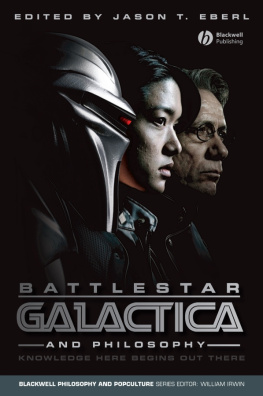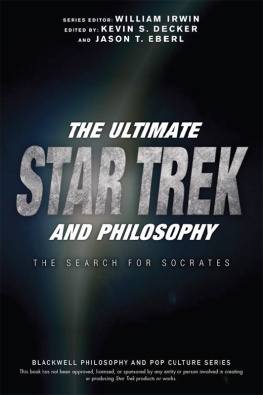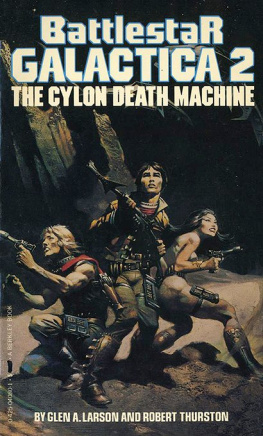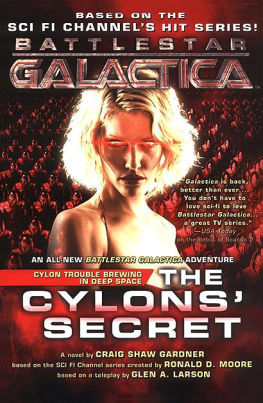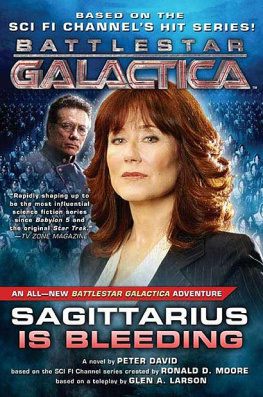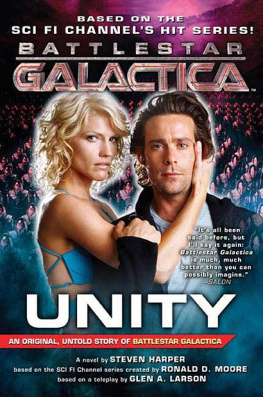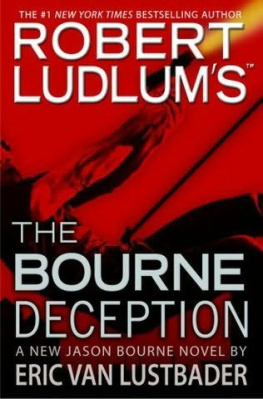The Blackwell Philosophy and PopCulture Series
Series editor William Irwin
A spoonful of sugar helps the medicine go down, and a healthy helping of popular culture clears the cobwebs from Kant. Philosophy has had a public relations problem for a few centuries now. This series aims to change that, showing that philosophy is relevant to your lifeand not just for answering the big questions like To be or not to be? but for answering the little questions: To watch or not to watch South Park? Thinking deeply about TV, movies, and music doesnt make you a complete idiot. In fact it might make you a philosopher, someone who believes the unexamined life is not worth living and the unexamined cartoon is not worth watching.
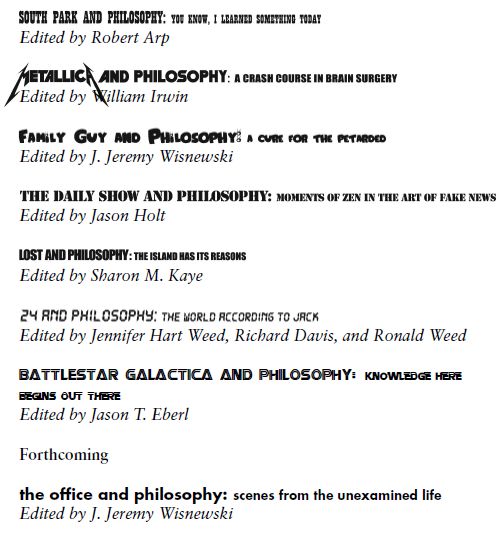

2008 by Blackwell Publishing Ltd
BLACKWELL PUBLISHING
350 Main Street, Malden, MA 02148-5020, USA
9600 Garsington Road, Oxford OX4 2DQ, UK
550 Swanston Street, Carlton, Victoria 3053, Australia
The right of Jason T. Eberl to be identified as the author of the editorial material in this work has been asserted in accordance with the UK Copyright, Designs, and Patents Act 1988.
All rights reserved. No part of this publication may be reproduced, stored
in a retrieval system, or transmitted, in any form or by any means, electronic, mechanical, photocopying, recording or otherwise, except as permitted by the UK Copyright, Designs, and Patents Act 1988, without the prior permission of the publisher.
Designations used by companies to distinguish their products are often claimed as trademarks. All brand names and product names used in this book are trade names, service marks, trademarks, or registered trademarks of their respective owners. The publisher is not associated with any product or vendor mentioned in this book.
This publication is designed to provide accurate and authoritative information in regard to the subject matter covered. It is sold on the understanding that the publisher is not engaged in rendering professional services. If professional advice or other expert assistance is required, the services of a competent professional should be sought.
First published 2008 by Blackwell Publishing Ltd
1 2008
Library of Congress Cataloging-in-Publication Data
Battlestar Galactica and philosophy: knowledge here begins out there/edited by Jason T. Eberl.
p. cm. (The Blackwell philosophy and popculture series)
Includes bibliographical references and index.
ISBN 9781405178143 (pbk.: alk. paper) 1. Battlestar Galactica (Television program: 2003) I. Eberl, Jason T.
PN1992.77.B354B38 2008
791.4572dc22
2007038435
Giving Thanks to the Lords of Kobol
Although the chapters in this book focus exclusively on the reimagined Battlestar Galactica, gratitude must be given first and foremost to the original series creator, Glen Larson. Its well known that Larson didnt envision Battlestar as simply a shootem up western in spaceThe Lost Warrior and The Magnificent Warriors aside but added thoughtful dimension to the story based on his Mormon religious beliefs. Ron Moore and David Eick have continued this trend of philosophically and theologically enriched storytelling, and Im most grateful to them for having breathed new life into the Battlestar saga.
This book owes its existence most of all to my friend Bill Irwin, whose wit and sharp editorial eye gave each chapter a fine polish, and to the support of Jeff Dean, Jamie Harlan, and Lindsay Pullen at Blackwell. Id also like to thank each contributor for moving at FTL speeds to produce excellent work. In particular, I wish to express my most heartfelt gratitude to my wife, Jennifer Vines, with whom I very much enjoyed writing something together for the first time, and my sister-in-law, Jessica Vines, who provided valuable feedback on many chapters. Their only regret is that we didnt have a chapter devoted exclusively to the aesthetic value of Samuel T. Anders.
Finally, Id like to dedicate this book to the youngest members of my immediate and extended families who are indeed the shape of things to come: my daughter, August, my nephew, Ethan, and my great-nephew, Radley.
There Are Those Who Believe...
The year was 1978: still thrilled by Star Wars and hungry for more action-packed sci-fi, millions of viewers like me thought Battlestar Galactica was IT! Of course, the excitement surrounding the series premiere soon began to wear off as we saw the same Cylon ship blow up over and over... and over again, and familiar film plots were retread as the writers scrambled to keep up with the networks demanding airdate schedule. At five years old, how was I supposed to know that Fire in Space was basically a retelling of The ToweringInferno?
Enough bashing of a classic 1970s TV show (yes, 1970sGalactica 1980 doesnt count). Battlestar had a great initial concept and overall dramatic story: Humanity, nearly wiped out by bad ass robots in need of Visine, searching for their long lost brothers and sisters who just happen to be... us. So it was no surprise that Battlestar was eventually resurrected, and it was well worth the twenty-five year wait! While initial fan reaction centered on the sexy new Cylons and Starbucks controversial gender change, it was immediately apparent that this wasnt just a whole new Battlestar, but a whole new breed of sci-fi storytelling. While sci-fi often provides an imaginative philosophical laboratory, the reimagined Battlestar has done so like no other. What other TV show gives viewers cybernetic life forms who both aspire to be more human (like Data on Star Trek: The Next Generation) and also despise humanity and seek to eradicate it as a pestilence? Or heroic figures who not only acknowledge their own personal failings but condemn their entire species as a flawed creation? Or a character whose overpowering ego and sometimes split personality may yet lead to the salvation of two warring cultures? The reimagined Battlestar Galactica is IT!
Like the ragtag fleet of Colonial survivors on their quest for Earth, philosophys quest is often based on evidence of things not seen. The questions philosophy poses dont have answers thatll pop up on Dradis, nor would they be observable through Dr. Baltars microscope. Like Battlestar, philosophy wonders whether what we perceive is just a projection of our own minds, as on a Cylon baseship. Maybe were each playing a role in an eternally repeating cosmic drama and theres a divine entityor entitieswatching, or even determining what events unfold. These arent easy issues to confront, but exploring them can be as exciting as being shot out of Galactica in a Viper (almost).
Whether you prefer your Starbuck male with blow-dried hair, or female with a bad attitude, youre bound to discover a new angle on the rich Battlestar Galactica saga as you peruse the pages that follow. Some chapters illuminate a particular philosophers views on the situation in which the Colonials and Cylons find themselves: Would Machiavelli have rigged a democratic election to keep Baltar from winning? Other chapters address the unique questions raised by the Cylons: Would it be cheating for Helo to frak Boomer since she and Athena share physical and psychological attributes? Tackling some of the moral quandaries when Adama, Roslin, or others have to roll a hard six and hope for the best, other chapters ask questions such as: How would

